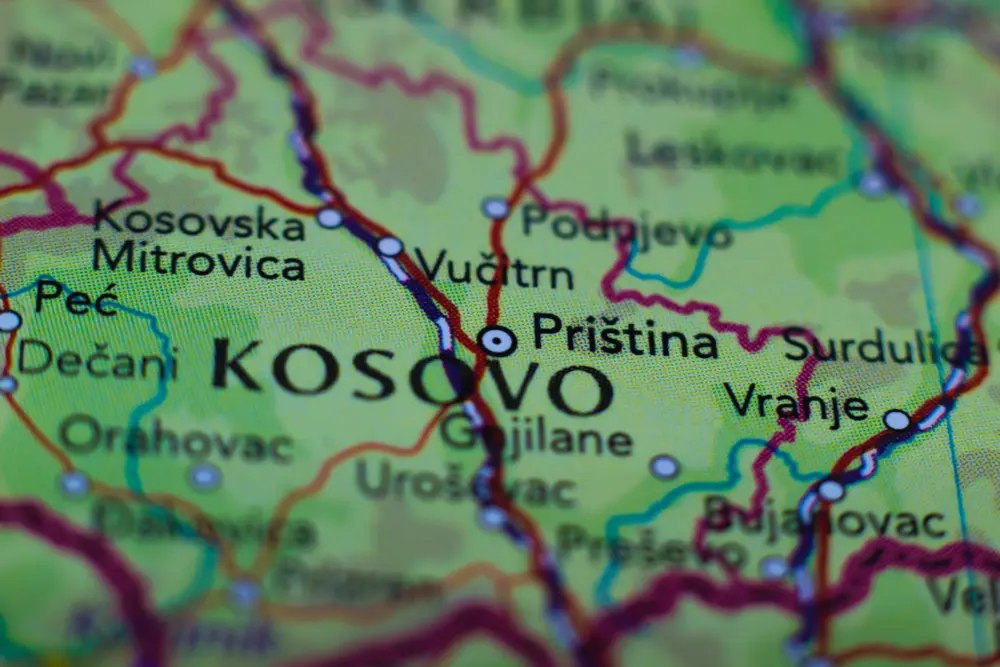
While attention remains focused on the events in Ukraine, the unresolved conflict between Serbia and Kosovo has been resurfacing over the past few days. The slightest tension there, however seemingly minor, can lead to a crisis situation with consequences that are difficult to control.
The province of Kosovo was declared independent in 2008, but has never been formally recognized by the Serbian government in Belgrade. Many countries, even in Europe, still don’t recognize the small Balkan state. Fifty thousand Serbs still live there and refuse to recognise the legitimacy of the institutions set up in Pristina, its capital. They continue to use the number plates and identity papers issued by Serbian authorities, to whom they have always remained loyal. A year ago, tensions had already arisen between Kosovo and Serbia for the same reasons as today: a change of rules—planned for August 1st—which intended to impose on Kosovo Serbs licence plates and identity papers issued by Pristina. The Serbian population in Kosovo refused to accept the changes, and in protest, some of them have blocked several crossing points between Kosovo and Serbia, erected barricades, and fired on Kosovar police.
Under international pressure, Pristina decided to postpone the introduction of the new provisions until September 1st. This short-lived respite has done nothing to resolve the basic problem, and barriers remain between Pristina and Belgrade. The European Union has been trying since 2013 to encourage dialogue, but without success. Negotiations—started in 2018 by Serbian President Aleksandar Vučić and former Kosovar President Hashim Thaçi, who planned to settle their differences through an exchange of territory—were met with stringent opposition from Albanian radicals, Serbian nationalists, and some European countries that were hostile to the idea.
Russia’s war against Ukraine has rekindled tensions. Russian diplomacy supports Serbian claims on the grounds that the existence of an independent Kosovo would have no historical validity—a parallel being easily drawn with Russian claims over Crimea in 2014 and now over Ukraine as a whole. The biassed supportive role of the West, and in particular the U.S., in the formation of Kosovo has also been denounced by Moscow for years. Despite signals sent to the European Union of its desire to maintain the balance between East and West, Serbia—under Aleksandar Vučić—remains very sensitive to the tutelage of the Russian “big brother,” from which it is strongly independent in terms of energy: 56% for oil and 51% for gas. At the UN, Serbia voted for the resolution condemning the attack on Ukraine but refused to join the international sanctions and to criticise the exactions committed by the Russian army.
In the midst of the warmongering atmosphere in Eastern Europe, Aleksandar Vučić has in the last few days been keen to play his own part, promising in a speech on Sunday, July 31st, the “Victory of the Serbs” if the Serbs were to be attacked. If Vladimir Putin’s intentions towards the Western Balkans remain unclear, the parallel with the situation in Ukraine should not be pushed too far either: NATO has never been present in Ukraine, while there are still 3,700 NATO soldiers stationed in Kosovo, making the task of the Serbs particularly difficult. In February, Kosovo asked the United States to establish a permanent base on its soil and expressed its wish to hasten its accession to NATO.
Kosovo 🇽🇰 accelerated membership to #NATO is an immediate need to guarantee security and stability in the region and beyond as Europe and the world is facing a serious security challenge after Russia’s severe aggression to Ukraine.
— Armend Mehaj (@armend_mehaj) February 27, 2022
